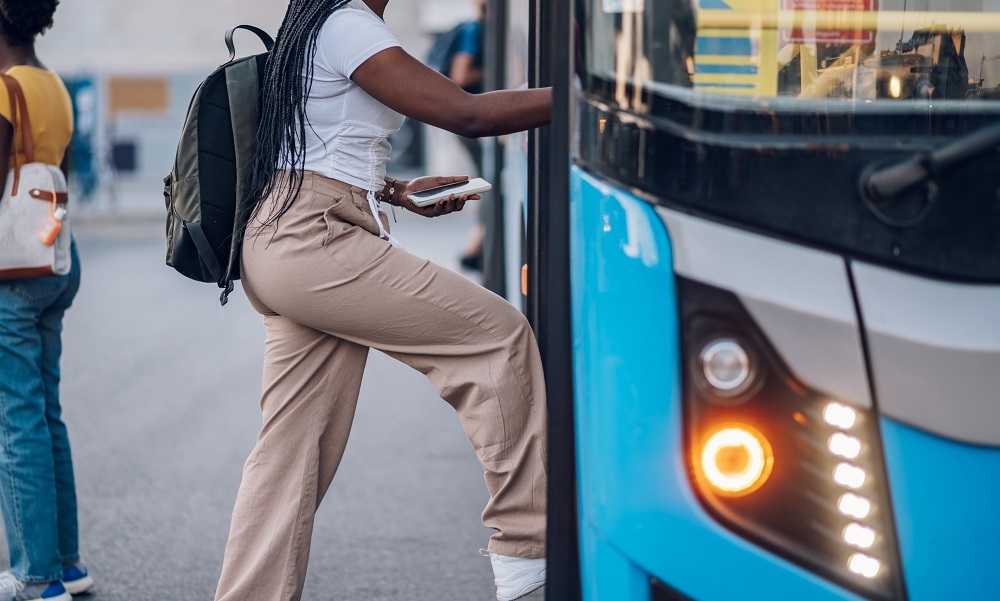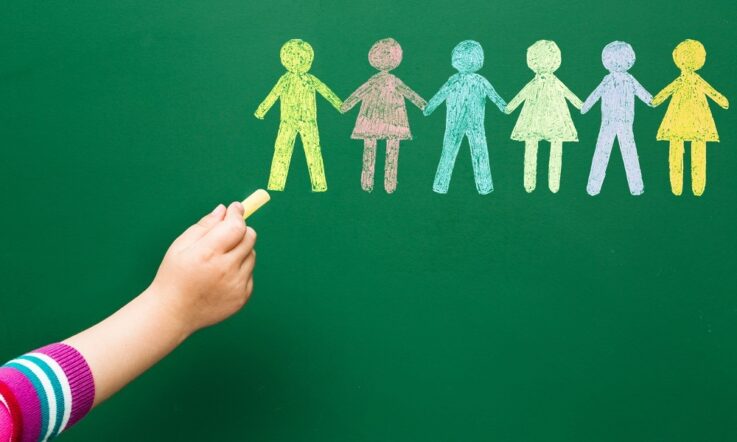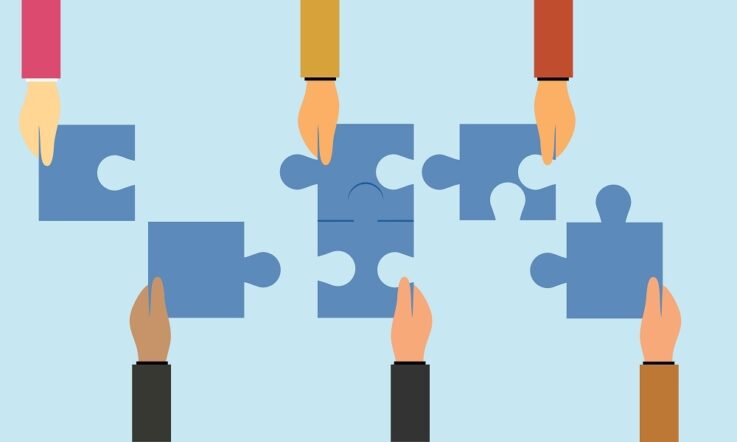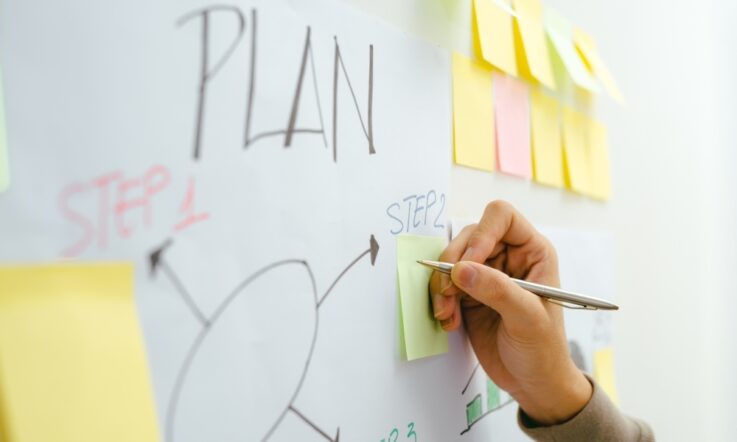This podcast from Teacher is supported by MacKillop Seasons, whose Seasons for Life project supports schools with loss and grief following a suicide and other loss event.
Thanks for downloading this podcast from Teacher magazine. I’m Dominique Russell.
In 2022 and 2023, Children and Young People with Disability Australia – the national representative organisation for children and young people with disability – conducted 3 surveys of children and young people with disability, and their families and carers, about their experiences in early childhood education and school settings.
The survey responses show that 29% of children in early childhood education and care settings and 70% of young people in school settings report being excluded from events and activities at school. As well as this, 28% in early childhood education and care settings and 65% in school settings reported experiencing bullying.
To unpack this research in more detail, we’re joined by Dr Catherine Smith from the University of Melbourne, who worked in partnership with Children and Young People with Disability Australia (or CYDA – that’s C-Y-D-A, as you’ll hear Catherine say during our discussion). Let’s jump in.
Dominique Russell: Thank you, Catherine, for joining us on this episode of The Research Files. Today, we're going to be discussing your research into the experiences of children and young people with disability in education settings, which has been completed with your report co-authors Professor Helen Dickinson and Dr Anne Faulkner, in partnership with Children and Young People with Disability Australia. Catherine, can you introduce yourself to our listeners and your role in this body of research?
Catherine Smith: I’m Dr Catherine Smith. I work in the Centre for Wellbeing Science at the University of Melbourne, which is located in the Faculty of Education, where I do a fair bit of teaching into the Masters of Education as well. My research is largely in relationships and education and care practices, and I'm interested in how different policy settings change those things.
So I've worked in a lot of advocacy around disability and around mental health before I came in to be an academic, mostly in NGOs that look at the rights and responsibilities of schools and students in the work that they do to represent the needs of students.
I was one of the lead investigators on this project with, as you said, Professor Helen Dickinson, Dr Sophie Yates and Doctor Anne Faulkner at UNSW. And we worked together with CYDA over the last 5 or 6 years on a number of projects that look at co-design with young people and advocating and amplifying the voices of young people for their rights in the disability sector.
DR: And the research involved 3 surveys that were completed to capture the experiences of children and young people with disability in education settings. One of the surveys involved families and carers of children in early childhood education and care, one involved students living with disability engaged in schools themselves (or who have recently left school) and there was one final survey for families and carers of children and young people in school. So, can you take me through those surveys?
CS: Sure. So the first survey, the early childhood survey, we received about 181 responses to that survey, 97% of those were from family members or caregivers and there were 5 responses from advocates or educators in the field as well. The second survey, the youth survey, it's the first one we've done like this with CYDA and the first one that CYDA has done. It represents just young people's voices, young people with disability, and there were 231 respondents to that. And the final survey is the family survey, and it talks to families and some young people. It's a repeat survey that we've done a couple of times and CYDA’s done before that as well (they do it annually). This one, we use the opportunity to compare it to some of the statistics from previous surveys, particularly those before the pandemic, to take a look at what might have changed and what has stayed the same.
DR: And how the survey questions decided on?
CS: With the family survey, the survey was decided on with, well, with a lot of different kind of people over time. So we tried to keep it as much like previous surveys as possible, with some feedback from young people on the different boards at the Children and Young People Disability Australia. With the youth survey, we also worked with that group to make sure that the language was responsive as well. And the early childhood survey was a group effort actually, and we wanted to make sure that those questions spoke to particular contexts and early childhood and include some opportunity for people to speak to things that we already knew might be places where people would like to tell us what was happening.
DR: And before we look at some of the areas in detail in terms of your findings, could you give listeners a bit of an overview of the findings?
CS: Yeah. So this was a really unique opportunity to take a look at the whole system at a time when once again we're in a set of reviews around education. And so we wanted to make sure that we were capturing as many different parts of the system as possible because much of the issues that we kind of see in the report are systemic issues.
They’re things that have emerged again and again in education, and while we are signatories to a whole bunch of different kind of conventions – the United Nations Convention on the Rights of Persons with Disability, Australia's disability strategies, next National School Reform agreements – all these things kind of speak to our desire for an inclusive education system.
What we see in practice is a lot of division between states and the federal government and funding bodies, and it leaves young people at the heart of all this, often with some pretty challenging policy circumstances through which to kind of manoeuvre their own education and their own aspirations.
DR: The survey for early childhood education and care settings found that more than 80% of children were made to feel welcome in these settings. But in school settings, only 54% of students said they felt welcome and included. Did that result surprise you at all?
CS: Not really. There's a lot of different reasons why that could be. And of course, we can only speculate as what those reasons might be and take from the research and the statements that are in the survey.
But early childhood settings are set up for a lot of feedback loops between families and carers and the educators. And they are the first port of call for schooling and so they do kind of have a lot of systems in place to address that at different developmental levels. Their teachers are trained that way to kind of identify both what's happening for kids and where they fit on a developmental spectrum and ultimately make a recommendation about whether kids are school ready or not. So that would include a lot of partnership work that falls off as kids get older and schools take different approaches towards the relationship with home and the relationship with the student.
DR: And another key overall finding is that many respondents said they believe teachers aren't sufficiently trained and equipped to support students with disability. So before we discuss some specific areas of concern, are there any practical recommendations for schools on addressing teacher training and supporting students with disability at a broad level?
CS: Yeah. And really, the findings here come directly from the young people. In the youth survey in particular, but also in the family survey, we heard time and time again that teachers had a lot of really good intentions a lot of the time, but hadn't really had the opportunity to interact with young people or other people with disability, and so really needed the opportunity to learn from people with the lived experience of disability. And this is something that we're seeing take place in a lot of policy spaces and a lot of research spaces, the understanding that, you know, as kind of a lot of advocates say, ‘nothing about us without us’, this kind of idea that we need to have feedback loops that include the voices of people with disability. And we need to kind of have the opportunity to have teachers and educators and principals exposed to the experiences of young people from surveys like this, but also from people who've actually lived through the experiences of schooling and can talk about the ways in which things can be done better.
Coming up, Dr Catherine Smith will share more details on the research findings relating to exclusion and bullying. But first, here’s a quick message from our sponsor.
You’re listening to a podcast from Teacher magazine, supported by MacKillop Seasons, whose Seasons for Life project supports young people affected by suicide and other loss events throughout Australia. Free for Australian high schools and based on the strong evidence-base of the Seasons for Growth change, loss and grief education programs, the Seasons for Life project builds wellbeing, resilience, social and emotional coping skills, and strengthens supportive relationships.
DR: Experiencing exclusion was a key theme to emerge from this research, and we've heard in media already some conversation about this theme. Specifically your findings were that problems were identified in the area of school excursions and PE classes. Can you talk me through these findings specifically and if there is anything schools can do now to begin to reflect on these things for their own school settings?
CS: Sure. So this specifically comes from the youth survey, and this is the data we didn't really have in the teacher survey because kids are more talking to their experiences in school and where they do feel excluded.
And some of these are system level problems, but also some of them are just around the way in which we have time to plan for things. And the way in which we see them as practical, risk averse educators, you know, as opposed to the experiences and what they're really about in school.
So things like school excursions and PE classes and riding on the school bus, those are things where kids actually get a little outside of the structures that we build for them in academics, and they have the chance to kind of spread themselves out socially. And while we do work hard around social-emotional learning in the classroom, we do need to also kind of give kids a chance to do that in a more freeform play setting.
When we look back at the early childhood care setting, a lot of the play that happens in early childhood gives kids a chance to understand each other in different ways and to learn to empathise around different people's opinions and the way that we kind of compromise and come together around our differences. Those opportunities disappear in education a lot of the time, unless they're built in specifically.
Except in these situations. But in school excursions, young people told us that a lot of the time they had to travel separately, or they were [excluded] from school excursions because there wasn't the staff to kind of travel with them or their parents were asked to come. This was even in early childhood. And that leaves kids with a barrier, like an adult bubble around them, that means that they're differentiated in a way that separates them from other kids.
In PE we see kind of the same thing happen where there's often excuses made or there are adaptations made to the classes that mean that there's a real differentiator between how kids with disability and neurodiversity are able to participate.
But we see in research more recently that there's so many opportunities to build in a lot of that understanding between all students to come together and have different experiences. If those classes are adapted before they even start, so that everybody can kind of enter at an equal place where they can participate in whatever chosen way that there is, we see in, like where tech is used, and kids have specialised equipment, having that equipment there for everybody means that lots of young people can get involved in different ways that we might not necessarily originally see are more beneficial to them.
And when we do some adaptations, whether it's, you know, scaffolding language in particular ways or pre-teaching vocabulary or giving people more of a chance to practice, or flipping lectures before we come in, all those kinds of opportunities are beneficial to lots of different learners in lots of different ways. And when they're made universal, so everybody can get involved, then we don't have that separation that happens between young people when there's a differentiation for one particular student that continues to other them in different ways.
And that can really be beneficial for all students. We don't see any research that says that there's anything but a benefit to kids without disability, being educated with kids with disability. And so we think that there's a real opportunity here to consider how we set up systems so that students can talk back to how their needs are being met and to have a say in how they might be met better and what's working and what doesn't work.
And you know, Dominique, we have these individual education plans and individual learning plans and individual behaviour learning plans that are put in place. You know, they're documents that are put in place to identify particular aims we have for individual young people's learning, and they're often used with kids with disability to set goals and to help them do that work.
But what we've heard again and again in surveys with CYDA is that that they don't often kind of work in a living document way. Even when there's mandates kind of that come in to say, you know, schools really have to have this documentation in, a lot of the time, the amount of work that is required to create these meaningful documents means that we have to get allied health professionals and principals and teachers that know the students and the student and their carers all in the room together. And it comes down to time and whole school systems that can respond to these sorts of things.
And so we can kind of see where unless we start to think about how these systems can work, there's a constant mechanism that stops people from being able to take advantage of what professional development is out there, what opportunity there is to kind of get meaningful feedback systems from young people and to actually kind of address those needs in real time.
That reciprocity of thinking about how we meet kids’ care needs in classes, but also how kids feel like they're contributing to their own school and their own community, is a really important part of making you feel like you belong in a community. But these IEPs are also an opportunity for kids to develop skills, developmentally over time – you know, every time that they review them – in having agency in their own care, in the way that their needs are met and individualising kind of what they require from the school and also how they can contribute to the school and using those in that way should make a big difference to the way in which kids move forward with their own aspirations as well.
DR: You also write in the report that ‘one of the most confronting parts of the data collected through this survey is the degree to which students with disability face bullying within schools.’ So, can you tell me what the data showed and what do you recommend school leaders can do to begin to address this in their school settings?
CS: Yeah, we saw a real progression in the experiences of bullying from young people and some of the stories are pretty difficult to read. And they're not surprising to us. We've heard them in the Royal Commission. We've heard them in different reports and NDIS reviews. We know that we have work to do around inclusion, not just in schools, but in society. But we're never going to address those things by pulling people apart.
The bullying that happens within schools often starts with frustration. And we need to work with all kids to help them understand the differences. We create lines in the sand, you know, by kind of creating different points either through intellectual kind of quotients or physical disability that say who can and can't come in. But there's much more of a spectrum there that we often give credit for, and part of our funding bodies and part of the different things that kind of address how much response economically we give to schools around the help that they can give to kids makes a big difference to the decisions that happen around including kids.
But if we don't kind of get everybody together in classes where we're doing, you know, considered social-emotional learning, which we know is necessary now for a whole community to kind of thrive and support; and we don't kind of bring it in together or around whole school systems, you know, tiered and understanding of the different levels of support people are going to need, then we can't really address at an individual school setting level, what can happen.
We know that there are big pieces to this that go right back to kind of health promoting schools. We know that we need good partnerships with families and also good partnerships with other agencies and organisations that make up our communities. Families and kids need to feel like they belong to the community more than just at school. School cannot be the answer. We only have 208 days in school every year to kind of work with these kids and with all kids. It has to be one part, but it can be the part where the community all comes together. We also need to think about the way that our policies are working and the way that funding can sometimes be really confronting in terms of who can get what support and that goes to bigger questions around where kids can go to school and who gets to go to school where.
And we also need to think about the in-classroom relationships and the things that happen, and we need to think about who's caring for teachers in their work, doing the work of creating more inclusive classrooms and supporting students in the ways that we're talking about.
There's a lot of pressure and a lot of attrition from teaching and a lot of that has to do with things just being a little too hard. And we're not talking about easy work here. We're talking about work that needs to be supported. And we have a tonne of really important expertise in advocacy communities and also in specialist schools. In special schools, those teachers have real expertise and real training around these things. If we can bring those teachers into partnership with local schools, there's so much we could do with the information there and we bring those voices in from the disability community and the other communities that require those sorts of representation within a school. And we think about it in terms of a whole school community. Those context specific adaptations we can make will be able to make a real difference.
… We can continue to think about how we build capacity for young people to talk back to their education, you know, and families to talk back to the opportunities that kids have in education and the way that they meet their aspirations and that that's going to have to happen through more facilitation of student voice.
We need to think about how confounding some of the systems are around young people with disability that actually make it harder for them to move through the system than kids who don't necessarily have the same challenges and the same need to speak back specifically to their education.
That’s all for this episode. Thanks for listening. If you’re interested in reading the papers from Catherine and her colleagues on this research, you can find a link to it in the transcript of this podcast, available over at our website, teachermagazine.com. You can find it by clicking on the podcast tab at the top of our homepage. Before I go, I have a quick favour to ask – please take a few moments to review our podcast; it helps other people like you to find it and it’s a big support to the Teacher team. We’ll be back with a new episode very soon.
You’ve been listening to a podcast from Teacher, supported by MacKillop Seasons, Seasons for Life – supporting schools and young people affected by suicide and other significant losses. Visit mackillopseasons.org.au.
Further reading:
In this episode, Dr Catherine Smith says families involved in their research expressed that while teachers have good intentions, they haven’t had the opportunity to directly learn from people with disability.
As a school leader, think about the training and support you provide to staff in the area of supporting students with disability. Are people living with disability directly involved in this process? If not, how could you ensure this is a key element of future training opportunities?
Reflect on how your school is currently supporting students with disability. What are some areas of improvement? What are you already doing well?



